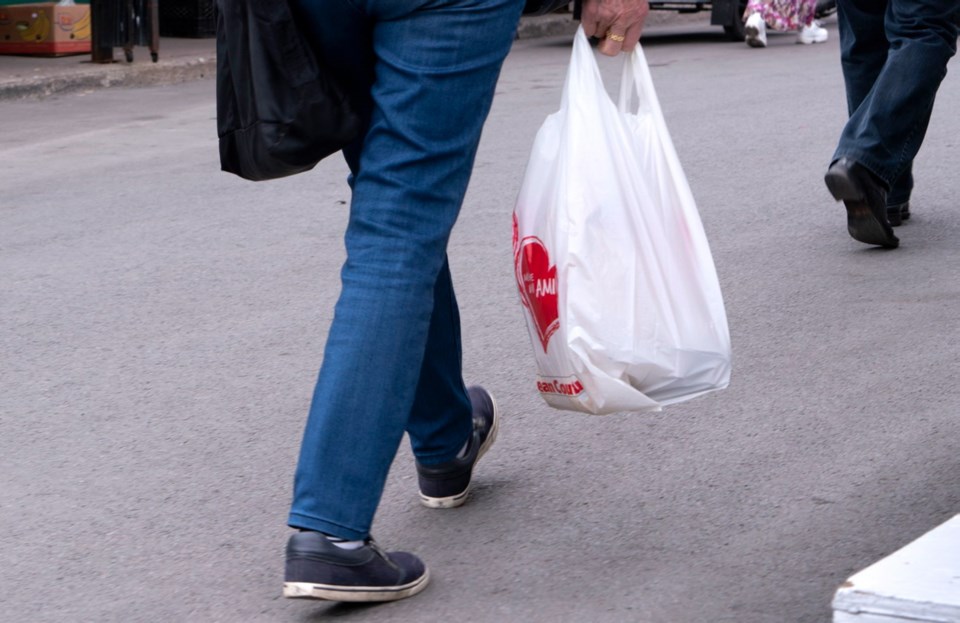Victoria Mayor Lisa Helps is praising the province for approving local bylaws banning single-use plastics in Victoria, Saanich, Tofino, Ucluelet and Richmond.
On Saturday, the province also announced it is drafting a new regulation under the Community Charter, allowing local governments to ban single-use plastics such as shopping bags, plastic straws and polystyrene foam take-out containers without provincial approval.
“It’s very good news to have the bylaw approved,” said Helps “I think the bigger and better news is that the province is going to make a regulation so that we can make bylaws of this nature without asking the province for permission. Their longer term plan seems to be that the province is going to make provincewide bans of single-use items, so that’s a very good news story today.”
Although Victoria implemented a ban on single-use plastic bags on July 1, 2018, the bylaw was struck down by the courts following a challenge from the Canadian Plastic Bag Association. The B.C. Court of Appeal ruled Victoria had exceeded its powers because its plastics bylaw waded into provincial jurisdiction. The Supreme Court of Canada declined to hear Victoria’s appeal, but the province was listening.
“People have been consistent and vocal about the need to take serious action now on plastic waste and pollution and we have heard the message loud and clear,” said George Heyman, minister of environment and climate change strategy. “Even in the face of current economic downturns, local governments and businesses have told us they remain committed to preventing millions of single-use plastic products from damaging the environment, polluting B.C.’s waters, harming wildlife and increasing costs for taxpayers.”
The ministry received 35,000 replies when it asked the public for input on its CleanBC Plastic Action Plan, the province said in a statement. The responses highlighted the need to move toward provincewide bans on certain products.
“We will develop a legal framework to allow for provincial bans on single-use items, such as straws, takeout containers, shopping bags and other priority items. As we initiate this work, we will continue to consult to make sure solutions are manageable,” Heyman said. “We will also ensure that specific products continue to be available to people who live with a disability or need them for health reasons. We will align our actions with federal government initiatives if they occur on a reasonable timeframe.”
The province is expanding the number of single-use products, such as plastic cutlery, sandwich bags and stir sticks which can be recycled through industry-funded residential recycling programs. It is also exploring recycling programs for items such as mattresses, electric-vehicle batteries, propane canisters and more and looking for ways to improve the recycling of packaging, said the statement.
Working with Encorp Pacific (Return-It), the ministry is introducing a minimum 10-cent deposit on all beverage containers. And, for the first time, milk and milk-alternative containers are scheduled to be added to the deposit and refund system.
The deposit-refund system has also been improved. New cashless, low-touch Return-It Express systems continue to come online and consumers who drop off their tagged refundable beverage containers to select locations can have their refund processed electronically.
The government is also looking for feedback on how to deal with lost fishing gear that pollutes oceans and shorelines.
These efforts reflect the feedback received by Sheila Malcolmson, parliamentary secretary of environment and special adviser on marine debris and abandoned vessels.
“Last year, I toured many coastal communities to hear first-hand the challenges they are facing with marine debris, including plastics,” Malcolmson said. “Every person and organization I heard from, including local governments and First Nation communities, expressed their fears for the marine environment and their commitment to being part of the solutions.”
CleanBC was developed in collaboration with the B.C. Green Party caucus and Andrew Weaver, MLA for Oak Bay-Gordon Head.
ldickson@timescolonist.com



